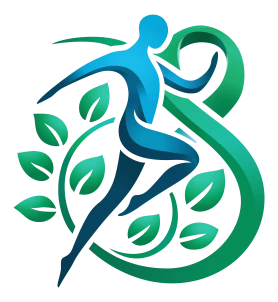
For most women, a diagnosis of breast cancer turns their world upside down.
The treatments, the appointments, the endless waiting rooms. Yet, many people around them focus solely on the disease itself and don’t realize that one of the toughest challenges isn’t just the cancer, it’s the side effects from the treatments.
If you’re walking a similar path, know that you’re not alone. In Australia, one in seven women will receive a breast cancer diagnosis by the age of 85.
Radiotherapy is a critical component of treatment, but it often brings along cancer-related fatigue, affecting up to 100% of patients during and after therapy. It’s a kind of tiredness that isn’t relieved by a good night’s sleep. Many describe it as a fatigue that makes simple tasks feel like climbing a mountain, touching every part of life, and sometimes even affecting the ability to complete treatment.
For years, the common advice was to rest as much as possible during treatment. It sounds sensible, right? But what if I told you that too much rest might actually be holding you back? Prolonged inactivity can lead to muscle weakness, fat gain, decreased endurance, and even more fatigue. It’s a cycle that can make you feel trapped in your own body.
We wanted to find a way to help women feel strong again, regain energy, and reconnect with a sense of beauty and vitality during this challenging time. So we sought out to see if gentle, regular exercise could make a difference.
We designed a 12-week home-based exercise program combining resistance (strength) and aerobic (cardio) exercises. Our goal was to create a regimen that was accessible and adaptable, allowing women to exercise safely at home with minimal equipment. We had a control group of 46 women who did not exercise, while we provided 43 women, aged 32 to 78, in the exercise group with personalized support, including a one-hour face-to-face consultation, regular phone check-ins, an exercise manual, and necessary equipment like resistance bands and step counters.
What we discovered was exciting. Women who engaged in regular exercise during their treatment reported feeling significantly less fatigued than those who didn’t. They also experienced significant enhancements in their overall health-related quality of life, feeling better physically and emotionally sooner than those who didn’t exercise. So exercise wasn’t just making them feel healthier, fitter, and stronger; it was actually reducing the fatigue from radiotherapy instead of contributing to it.
Even though we aimed to progressively increase the amount of exercise to meet the national guidelines, the women in our study, even with less exercise than recommended, still experienced significant decreases in cancer-related fatigue and improvements in quality of life!
The thought of adding exercise to an already overwhelming routine might feel intimidating. The key is to start with small steps and to choose activities that feel right for you. The simple act of moving is a powerful statement against the helplessness that cancer can sometimes impose.
Our research showed that these small steps can lead to significant benefits. The women in the exercise group didn’t just see improvements during their treatment, but they also carried these positive changes with them afterward. Even 12 months after the end of the exercise program (a whole year!) we sent questionnaires to all our participants and we found that they were still exercising significantly more than the control group. So the exercise program helped them foster long-term healthy habits.
From the many people with cancer that I’ve spoken to and worked with, I know that exercise offers a way to feel centered in the midst of chaos. It provides moments of calm and focus, helping to alleviate some of the anxiety and stress that often accompany treatment.
Facing breast cancer is undoubtedly challenging, but you have within you a well of strength and courage. You have more power than you might realize.
By choosing to move, even in the smallest ways, you can help alleviate some side effects of treatment, enhance your overall sense of well-being, and become more connected to the essence of who you are. Exercise can be a source of strength, energy, and beauty during breast cancer and beyond.
Embrace the power of movement.
If you’re ready to take control of your health and incorporate targeted exercise that doesn’t just improve your fitness but also supports your cancer treatments and reduces their side-effects, start working with me today. I create personalized exercise and nutrition programs that will fit into your schedule and empower you to win back your health. Don’t settle for generic advice. You deserve a plan that considers every aspect of your condition, from fighting cancer cells to minimizing the side effects of treatments. This is your opportunity to invest in yourself, your health, your energy, your future.
For more insights like this and practical recommendations you can apply right away, subscribe to my newsletter
References
Mavropalias, G., Cormie, P., Peddle-McIntyre, C. J., Galvão, D. A., Taaffe, D. R., Schofield, C., Ray, S., Zissiadis, Y., & Newton, R. U. (2022). The effects of home-based exercise therapy for breast cancer-related fatigue induced by radical radiotherapy. Breast Cancer, 30, 139–150.
